Insurgents, Raiders,
and Bandits
By the Same Author
Worst Enemy
The Reagan Imprint
From Troy to Entebbe
In Athenas Camp
Networks and Netwars
Insurgents, Raiders, and Bandits
How Masters of Irregular
Warfare Have Shaped Our World
John Arquilla

Ivan R. Dee
Chicago
Ivan R. Dee
An imprint of The Rowman & Littlefield Publishing Group, Inc.
4501 Forbes Boulevard, Suite 200, Lanham, Maryland 20706
www.ivanrdee.com
Estover Road, Plymouth PL6 7PY, United Kingdom
Distributed by National Book Network
Copyright 2011 by John Arquilla
All rights reserved . No part of this book may be reproduced in any form or by any electronic or mechanical means, including information storage and retrieval systems, without written permission from the publisher, except by a reviewer who may quote passages in a review.
British Library Cataloguing in Publication Information Available
Library of Congress Cataloging-in-Publication Data:
Arquilla, John.
Insurgents, raiders, and bandits : how masters of irregular warfare have shaped our world / John Arquilla.
p. cm.
Includes bibliographical references and index.
ISBN 978-1-56663-832-6 (cloth : alk. paper)ISBN 978-1-56663-908-8 (electronic)
1. Irregular warfareHistory. 2. Asymmetric warfareHistory. 3. Guerrilla warfareHistory. 4. Military history, Modern. I. Title.
U167.5.I8A77 2011
355.02 ' 18dc22
2010054367
 The paper used in this publication meets the minimum requirements of
The paper used in this publication meets the minimum requirements of
American National Standard for Information SciencesPermanence of Paper
for Printed Library Materials, ANSI/NISO Z39.48-1992.
Printed in the United States of America
For Hy Rothstein
(Colonel, U.S. Army Special Forces, ret.)
One of the modern masters
preface
F or all the hope of peaceful progress that accompanied the turn of the new millennium, its first decade ended with more than thirty armed conflicts still in progress. Most were civil wars, but some involved the presence of foreign troops, like the lingering American intervention in Afghanistan. Yet the salient fact about the ongoing conflicts of our time is that all are irregular in nature. That is, they are primarily conducted through acts of terrorism or more classic guerrilla hit-and-run tactics. Those who face insurgents and terrorists have learnedas the Americans did in Iraqthat conventional responses will not suffice. Thus the forces of order and stability have been ineluctably drawn to mount irregular small-unit raids of their own, and have often found themselves teaming up with local tribesmen and a range of other groups in all manner of unusual field operations.
In the conventional realm of warfare the best strategies are generally gleaned from the careers of the so-called great captains, such as Julius Caesar, Frederick of Prussia, and Napoleon Bonaparte. Choosing the most effective of the moderns usually sparks a lively discourse, one that often ends with heads nodding in George Pattons direction. But even insights that might be drawn from the near great who ended in defeat, like the Confederacys noble Robert E. Lee or Germanys Erwin Rommel, the Desert Fox, are closely studied. The literature is large indeed.
Yet when it comes to the great captains of irregular warfare, the same can hardly be said. While there are many accounts of daring commando raids, and more thoughtful works that explore the complex relationships between elite military advisors and friendly indigenous fighters, there is precious little study of the principles that might be distilled from the stories of those whose campaigns have proved exemplary. To be sure, the memoirs of Mao Zedong, Vo Nguyen Giap, and Che Guevara provide important general insights. But they only begin to poke holes in the darkness. In order to understand the strategic implications of this new age of insurgency, terrorism, and other forms of irregular warfare, we must look closely at the earlier masters.
I have sought to fill this gap by telling the stories of some of the greatest guerrillas, raiders, and counterinsurgent experts of the past 250 years. This period coincides roughly with the span of the Industrial Age and also covers the heydays of both modern imperialism and nationalism. The era of postWorld War II rebellion against colonial rule and the conflicts that raged around the edges of the Cold War also come under close scrutiny. The survey ends in the near present, a time when rising networks of nonstate actors have come into bitter conflict with leading nations, with no apparent end in sight.
The action itself ranges across the world, beginning in the eighteenth-century North American wilderness. There the opening markers are the deaths of British general Edward Braddock and more than a thousand of his troops in 1755, ambushed by a very small Franco-Indian force, and the formation of a colonial ranger unit better able to wage such wilderness warfare. The narrative crosses to Europe during the Napoleonic era, and from there branches out to Africa, South America, Arabia, Asia, and eventually encompasses the wide reaches of the Pacific during World War II. The masters whose stories drive the principal action come from many cultures: American, Spanish, Russian, Arab, Italian, Boer, British, German, Croat, Vietnamese, and Chechen.
The death in 2005 of the Chechen leader Aslan Maskhadovwho a decade earlier had beaten the Russians using an irregular swarming concept of operationsframes the near end of this survey. But between Braddocks death and Maskhadovs are the stories of many remarkable individuals. Their fighting skills aside, they are often obsessed with the importance of branding, especially in their manner of dress.
Despite their origins in so many different cultures, and style issues aside, the masters of the irregular have a great deal in common, most conspicuously their sheer indomitability. Robert Rogers led his rangers through unimaginable hardships in the wilderness war in North America. A generation later during the Revolution, Nathanael Greene lost virtually every pitched battle he fought, yet he kept coming at Lord Cornwallis and his Redcoats to distract them and create new and better opportunities for his dispersed guerrilla forces.
Rogers and Greene were hardly alone in overcoming adversity. The leader of irregular resistance to Napoleons occupation of Spain, Francisco Espoz y Mina, had his main force wiped out on no less than three occasions by his tough, smart French opponents. Yet he was able to reconstitute his insurgent forces again and again, finally prevailing.
Another kind of indomitability was reflected in a key campaign of the famous American Indian fighter George Crook. Instead of taking thousands of troopers into the Sonoran desert to chase after Geronimo, Crook ventured forth with just a few hundred, most of them friendly Apaches. He tracked Geronimo relentlessly, then walked into the enemy camp alone one day and talked the great warrior into giving himself up.
Similar panache was shown by the German commander in East Africa during World War I, General Paul von Lettow-Vorbeck. Beset on all sides by vastly superior enemy forces, he nonetheless launched a multipronged irregular offensive and continued raiding right up to the armistice. The list of such achievements goes on and on, as the masters of the irregular all seem to have been imbued with this sort of daring.
Beyond the great captains of irregular warfare, a few key supporting characters make recurring guest appearances in the pages that follow. The most frequent is Winston Churchill, who appears on the scene at the outset of the Boer War in 1899, returns to support T. E. Lawrences pan-Arab policy goals after World War I, develops a friendship with Tito, the Yugoslav partisan leader during World War II, and exits only after lobbying President Dwight Eisenhower not to come to the aid of the French as they were losing to Vietnams gifted insurgent leader Vo Nguyen Giap at Dienbienphu in 1954.

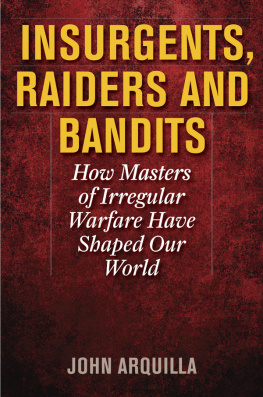

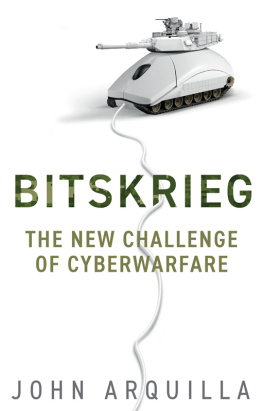


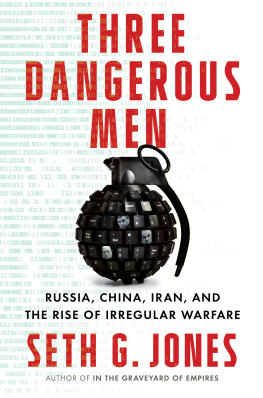
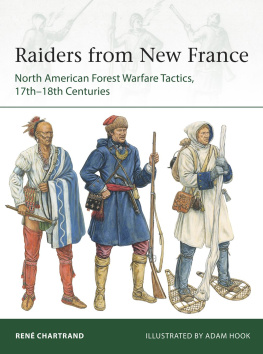
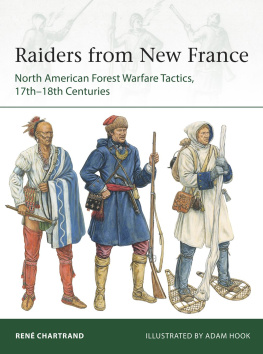
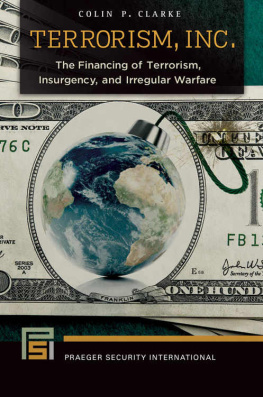

 The paper used in this publication meets the minimum requirements of
The paper used in this publication meets the minimum requirements of